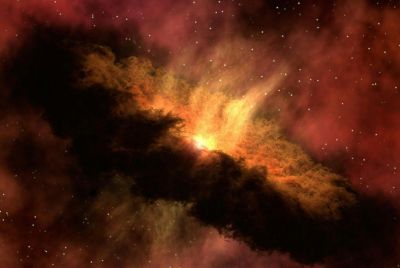Search for the 'Lost World' Begins: Ancient Antarctic Lake Expedition by British Team
The discovery of Lake Ellsworth in Antartica has got the world hooked onto what may exist in those mysterious waters. It has been miraculously cut off from the world for atleast 125,000 years. The ice sheet covering the lake has trapped the Earth's geothermal heat, preventing it from freezing. The solid ice sheet above the lake is almost 3 km thick. It is one of Antartica's 387 known subglacial lakes. Now, a team of British explorers are all set for an expedition into the untouched waters. This is the first expedition of this kind.
Apparently, they will use a hot-water drill to melt their way through the hidden lake. It is basically a spraying device on the bottom of a hose 3.2 km long. They are looking to examine both the water and the sediments at the bottom of the lake. This may hold the answers to help forecast climate change and find out more about life on earth.
David Pearce, science coordinator at the British Antarctic Survey said: "Finding life in a lake that could have been isolated from the rest of the biosphere for up to half a million years will tell us so much about the potential origin of and constraints for life on Earth and may provide clues to the evolution of life on other extra-terrestrial environments."
Experts believe that Lake Ellsworth is likely to contain bacteria, microbes and other simple life forms which have been sealed away from the rest of the Earth for up to a million years. The samples of water and sand taken from the lake could reveal undiscovered life forms which existed on Earth before the lake froze over, and what the planet's past climate was like.
The expedition and its results are also expected to support the theory that the West Antarctic Ice Sheet, which is currently on the wane thanks to higher global temperatures, has melted and collapsed in the past.
Expedition Mission leader Martin Siegert from the University of Edinburgh said, "For almost 15 years, we've been planning to explore this hidden world. "It's only now that we have the expertise and technology to drill through Antarctica's thickest ice and collect samples without contaminating this untouched and pristine environment."
"Our project will look for life in Lake Ellsworth, and look for the climate record of the West Antarctic Ice Sheet,"
"If we're successful, we'll make profound discoveries on both the limits to life on Earth and the History of West Antarctica," he told the BBC News. "If we find nothing (it) will be even more significant because it will define limits at which life can no longer exist on the planet."
Scientists also believe that if they find micro organisms evolving in such cold and dark conditions as in Lake Ellsworth, it will shed light on the Earth's past and the chances of finding life on other planets. This project is funded to upto £7m by the UK's Natural Environment Research Council.
The main aim of the mission is to obtain samples of water from the lake and the sediments on the floor.
The mission will kick-start next week with an engineering team from the UK, all set to to land in Antarctica with 70 tonnes of gear.
© Copyright IBTimes 2025. All rights reserved.


















